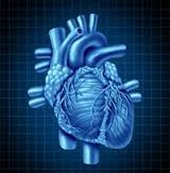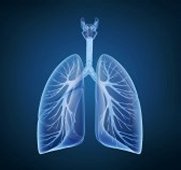|
CARDIORESPIRATORY:
 Cardiorespiratory physiologists work
closely with patients and investigate the functioning of the
heart and lungs to diagnose abnormalities, providing key
scientific and technological roles in the prevention, diagnosis
and monitoring of disease. A cardiac or respiratory
physiologist will be responsible for ensuring that safe,
accurate, reliable and repeatable results are produced, which is
vital for ensuring the quality of life for your patients. Cardiorespiratory physiologists work
closely with patients and investigate the functioning of the
heart and lungs to diagnose abnormalities, providing key
scientific and technological roles in the prevention, diagnosis
and monitoring of disease. A cardiac or respiratory
physiologist will be responsible for ensuring that safe,
accurate, reliable and repeatable results are produced, which is
vital for ensuring the quality of life for your patients.
They use specialist equipment, advanced technology and a range
of different investigations to fulfil their role.
Cardiorespiratory physiological scientists provide therapeutic
intervention and long-term patient management and care. A
clinical physiologist working in cardiac or respiratory sciences
will undertake crucial diagnostic, monitoring and analytical
procedures in patients ranging from babies to the elderly that
have known or suspected cardiac disease.
 Cardiac physiologists will often work
as part of a large team providing care to patients. They are
responsible for carrying out a range of tests to assess cardiac
function: Electrocardiography (ECG), Exercise Stress testing
(Ex-ECG), pacemaker implantation, management and follow-up,
cardiac catheterisation procedures, echocardiography and
electrophysiological studies. Cardiac physiologists will often work
as part of a large team providing care to patients. They are
responsible for carrying out a range of tests to assess cardiac
function: Electrocardiography (ECG), Exercise Stress testing
(Ex-ECG), pacemaker implantation, management and follow-up,
cardiac catheterisation procedures, echocardiography and
electrophysiological studies.
Respiratory physiologists work with patients that have lung,
chest wall, airway or blood oxygenation problems, such as
asthma, emphysema, respiratory muscle disease and pulmonary
vascular disorders. Their role is to identify the type of and
severity of the disorder and to monitor response of the patient
to treatment. They work with patients, performing a variety of
tests that require considerable encouragement, technical
accuracy and skills, as well as a dedicated and caring approach.
The range of tests that they perform includes full
cardio-pulmonary exercise testing, sleep studies, bronchial
challenge testing and measurements of dynamic and static lung
volumes. They may also be involved in performing respiratory gas
exchange studies, muscle function studies, blood gas analysis,
and monitoring responses to treatment, allergy testing and
physiological response to exercise.
Basic Life Support
The Basic Life Support is
the name of a short course for medical and non-medical staff to
provide personnel with the skills required to maintain a patent
airway to support breathing and the circulation without the use
of equipment following a cardiac arrest until further advanced
or professional help arrives.
|
|

